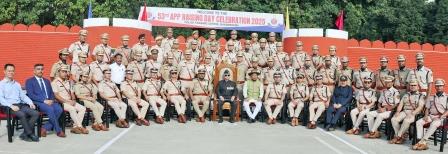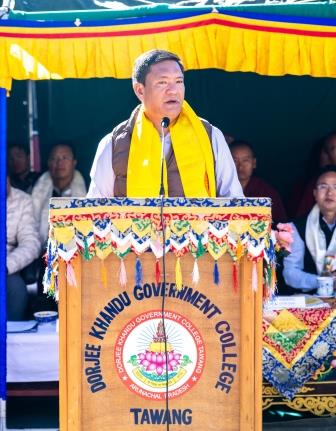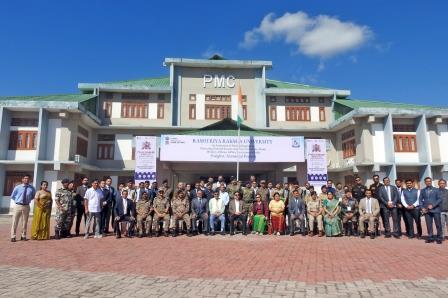-
 Governor graces Arunachal Pradesh Police Raising Day
Governor graces Arunachal Pradesh Police Raising Day
-
 CM inaugurates new blocks of DK govt college
CM inaugurates new blocks of DK govt college
-
Governor interacts with Press Gallery Advisory Committee
-
 Police technology summit 2025 held in RRU Pasighat campus
Police technology summit 2025 held in RRU Pasighat campus
-
Orgs to take protest to national capital, vows to fight…
-
4th Khangri glacier expedition begins in remote Mago Chu basin
-
Sapta Shakti Sangam celebrated at KGBV Kiyit
-
Vande Mataram a timeless song that stirred the soul…
-
Mein attends reunion of Tai royal families
-
DC Siang visits ITI Pangin
The proposed Regional Comprehensive Economic Partnership (RCEP) deal has hit headlines since there is now a growing apprehension that its signing by India would mean a possible death blow to the domestic industry, cutting across a wide range of sectors including agriculture. Pressure is mounting particularly from small traders and farmers who fear that the deal would open the Indian market which would be flooded by cheap imports thereby pushing their businesses and occupations on the verge of extinction. A free trade deal, which essentially means removing trade barriers between participating countries although supposedly ushers in mutual benefits and enrichment of economies involved, can bring negative consequences also that can be corroborated by various past records. As such, a free trade agreement is always a highly sensitive subject that needs extreme caution and should be pursued only if there is guarantee of a win-win situation. RCEP inking is clearly lacking consensus since it has deepened concerns and if disadvantages far outweigh the projected advantages, it is better to think twice or even more.
RCEP, which is a Chinese steered trade pact involving 16 countries has many rosy and mind-boggling figures to enchant anyone and if it comes into effect it would imply creation of the biggest free-trade region in world. Finalisation process is on currently at Bangkok with the heads of states participating, including India and the crux of the agreement is reducing or completely eliminating tariff and non-tariff barriers on imports and exports. This has naturally given rise to fears that if it eventually happens, are the Indian industries, particularly medium, small and micro ones be able to take the ‘shocks’ and survive onslaughts of cheaper imports. The answer should be an emphatic no. It would not require any specialised knowledge to arrive at this conclusion since records can hardly be debated. Can it be denied that from electronics, computers & their accessories, toys and a host of others, China is the undisputed king? Here, in front of ‘Made in China’, the ‘Make or Made in India’ propositions will seem daydreams rather. And it would not be illogical to foresee that now what is restricted to electronics and a few others will transcend to a solid number of other sectors and that means indescribable economic woe, presumably more than the current recession-triggered one. Indian manufacturing and farming sector’s ability is far from having that required maturity and strength to face the vagaries of competition brought about by international trade- it’s a fact and better be admitted.
If RCEP makes India a dumping ground for Chinese goods and means raw deals for traders and farmers, let there be further brain racking on the issue until a common consent is arrived.

Kenter Joya Riba
(Managing Editor)She is a graduate in Science with post graduation in Sociology from University of Pune. She has been in the media industry for nearly a decade. Before turning to print business, she has been associated with radio and television.
Email: kenterjoyaz@easternsentinel.in / editoreasternsentinel@gmail.com
Phone: 0360-2212313

